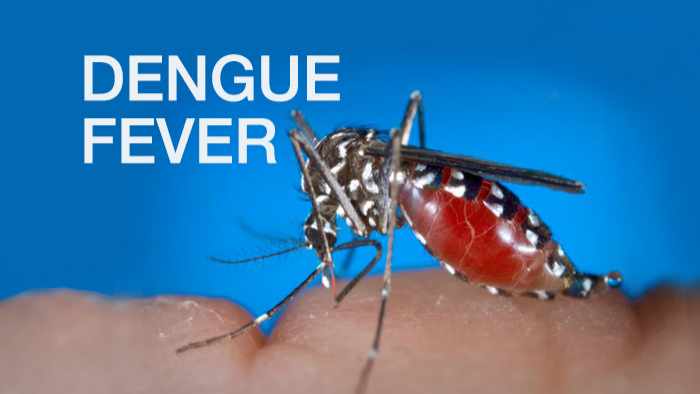-
Featured News
Dengue Fever: What You Need to Know
 An outbreak of dengue fever in Hawaii has prompted officials to declare a state of emergency on Hawaii's Big Island. Like Zika virus, dengue fever is spread to people through mosquito bites. The Centers for Disease Control and Prevention says dengue fever is a leading cause of illness and death in the tropics and subtropics, with as many as 400 million people infected yearly. Mayo Clinic infectious diseases specialist Dr. Pritish Tosh helps us understand this viral disease.
An outbreak of dengue fever in Hawaii has prompted officials to declare a state of emergency on Hawaii's Big Island. Like Zika virus, dengue fever is spread to people through mosquito bites. The Centers for Disease Control and Prevention says dengue fever is a leading cause of illness and death in the tropics and subtropics, with as many as 400 million people infected yearly. Mayo Clinic infectious diseases specialist Dr. Pritish Tosh helps us understand this viral disease.
Watch Dr. Tosh explain dengue fever
Dengue fever can be a very serious infection and is seen in many parts of the world including Asia and South America, and it is now extending into Latin America and the Caribbean. Dr. Tosh says, "This is a purely vector-borne disease, meaning you have to be exposed to an insect that is carrying the virus. It does not transmit person-to-person."
Symptoms of dengue fever can be mild to severe. Dr. Tosh says, "Dengue fever is also known as bone-break fever, which is a descriptive term of how people feel with this disease. It makes them feel just awful with bone and muscle aches." He says having dengue fever once does not prevent you from having it again.
Dr. Tosh says while there is no current vaccine available for the virus, dengue fever can be prevented. "If you are going to an area that you are likely to be bitten by a mosquito, then protect yourself by wearing insect repellant."







